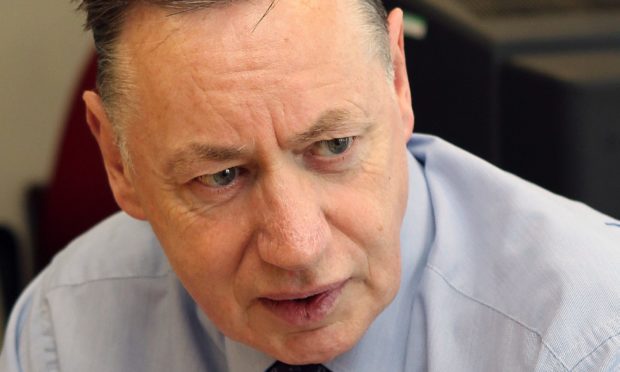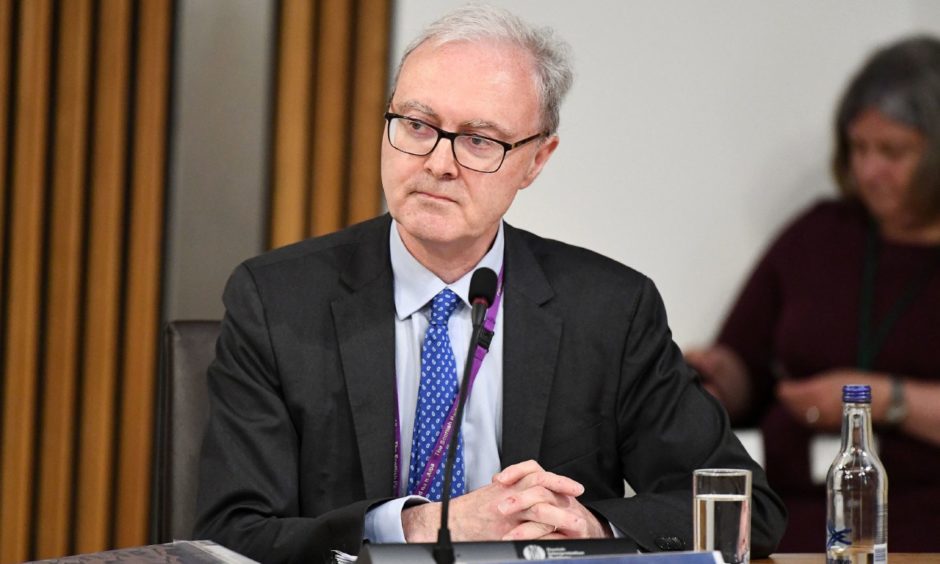It’s now almost two months since I wrote in these pages that it was high time the Scottish Government did the honourable thing and released all the papers required by the parliamentary committee examining what went wrong with the botched judicial review into the allegations against former First Minister Alex Salmond.
Mr Salmond, remember, won his judicial review against the Scottish Government at the Court of Session, and his legal team (not Mr Salmond himself, it should be pointed out) were awarded more than £600,000 in costs.
This sum was an “uplift” from the usual percentage of costs awarded to a successful litigant because of the conduct of the opposing party – in this case, the Scottish Government. Mind you, even this uplift did not go anywhere near covering the actual costs incurred by Mr Salmond’s team.
In order for the committee to know who is responsible for the bill, they need to know what legal advice the Scottish Government was given and, crucially, at what stage of their deliberations they received it. This is vital for the committee to understand. This bill, remember, was paid by you and me, the Scottish taxpayer.
Could the government have abandoned their case months earlier than they did? Should they have accepted Mr Salmond’s legal team’s repeated offers of mediation or arbitration? We don’t know, because the Scottish Government won’t tell us.”
Campbell Gunn
Incidentally, one of the things that regularly annoys me about media coverage of the committee’s deliberations is that it’s usually described as “the Salmond inquiry”. In fact, it’s an inquiry into the Scottish Government’s introduction of what was proved in court to be a deeply flawed complaints process, nothing to do (in theory, at any rate) with Mr Salmond.
We still don’t know what the internal costs were for the Scottish Government – the cost of hiring external lawyers, the time spent on the case by the government’s own lawyers, and the hundreds of hours the case must have taken up for ordinary civil servants, not to mention special advisers and ministers. In reality, the cost to the taxpayer must be well in excess of £1 million.
So who allowed the case to rumble on when it was patently obvious that the Scottish Government was going to lose? At what point did internal or external legal advisers tell civil servants or ministers that the game was up? Could the government have abandoned their case months earlier than they did? Should they have accepted Mr Salmond’s legal team’s repeated offers of mediation or arbitration? We don’t know, because the Scottish Government won’t tell us.
It’s the government’s decision not to do so. Legal advice belongs not to the lawyer giving it, but to the recipient – in this case, the Scottish Government. It claims there’s a “convention” that governments do not publish legal advice given to them, yet it’s just that, a convention, not a law, and ministers have already released such advice on at least three previous occasions.
The ‘obfuscation’ of the Lord Advocate
At the parliamentary committee’s most recent meeting last week, the obfuscation employed by Lord Advocate James Wolffe when answering MSPs’ questions was breath-taking. Indeed, MSPs were not slow in saying so.
Since then things have deteriorated even further. The committee meets again today and wanted to interview two senior civil service witnesses, Judith Mackinnon and Gillian Russell, both of whom who have direct knowledge of what went on during the setting up of the complaints process. However, their appearance before the committee has been blocked by Deputy First Minister John Swinney, who told the committee that their appearance would create an unacceptable risk of the names of complainers being identified.
I simply cannot see the logic in the Scottish Government’s position. If, as they say, they have nothing to hide, then surely they shouldn’t hide things. Do ministers, advisers and senior civil servants have any conception of how their current position looks from the outside?”
Campbell Gunn
His refusal was described by various members of the committee, from all parties, including the SNP convener, as “unacceptable” and “outrageous”. If identification was a concern, the committee could have gone into private session. Committee convener Linda Fabiani is a competent chairwoman and could have stopped matters if it seemed they might be straying into dangerous legal territory.
I simply cannot see the logic in the Scottish Government’s position. If, as they say, they have nothing to hide, then surely they shouldn’t hide things. Do ministers, advisers and senior civil servants have any conception of how their current position looks from the outside?
When I was involved in the case as media spokesperson for Mr Salmond two years ago, during the judicial review, few, if any, of my former press colleagues actually believed any of the “Salmond conspiracy” allegations. Now most of them do. And that change in attitude is entirely down to the way the Scottish Government has dealt with the parliamentary committee.
Of course, we are still to hear from some of the main players in the drama, including the First Minister, her chief of staff, Liz Lloyd, and Mr Salmond himself.
I’ll get the popcorn.
Campbell Gunn is a retired political editor who served as special adviser to two first ministers of Scotland.


